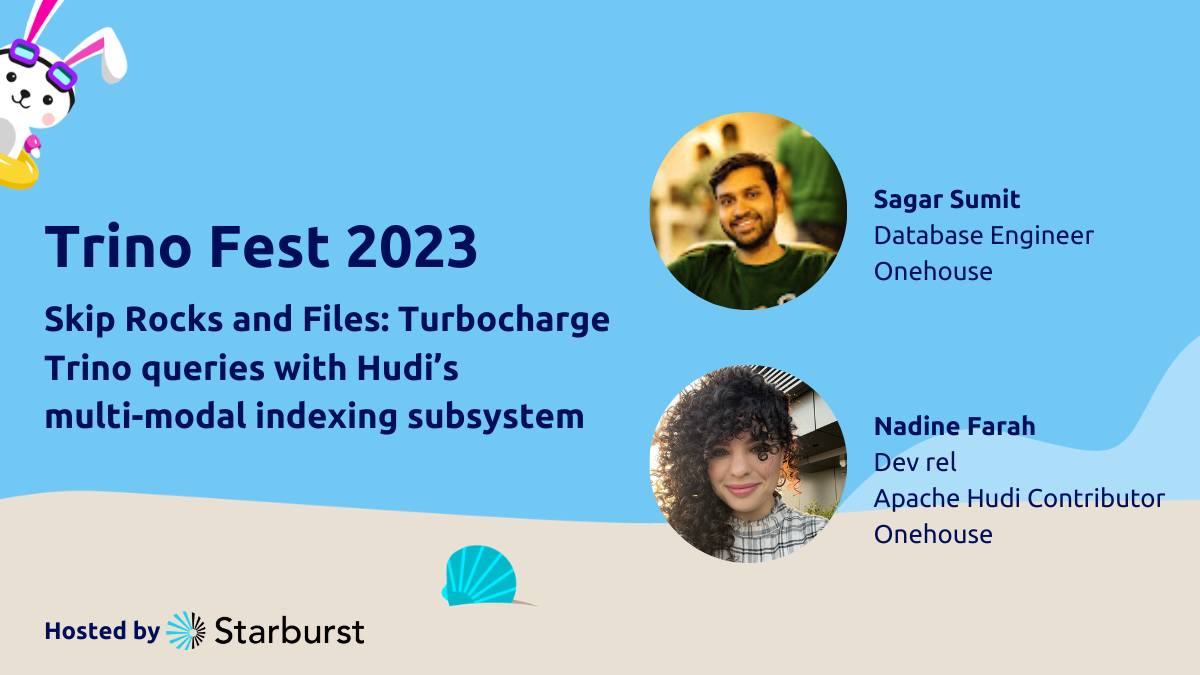
Optimizing data access and query performance is crucial to building low-latency applications and running analytics. Even with the modern data lakehouse designed to be as efficient and performant as possible, there are a number of bottlenecks that can slow things down and plenty of challenges to overcome. Nadine and Sagar explored this at Trino Fest, introducing us to multi-modal indexing and the metadata table in Hudi, how they work, and how leveraging them with Trino can unlock queries faster than ever before.
Recap
When you’re building large-scale data-based applications, bottlenecks are inevitable. Finding ways to address these bottlenecks and optimizing your platform to avoid them is going to be a huge cost, so it pays off to know your requirements. In the same vein, if you know the types of services and features you need to effectively scale, you can build with them in mind from the ground up. Hudi has a couple key features you might be interested in that aren’t present in all lakehouses:
- Write indexing, speeding up and optimizing inserts and upserts
- Automated table services, which handle clustering, cleaning, compacting, and metadata indexing without any need for manual orchestration or overhead
Nadine also goes on a deep dive into exactly how the Hudi table format works, but emphasizes that these extra features elevate it to being an entire platform, not just a table format.
From there, Nadine passes things off to Sagar, who does an explanation of the multi-modal indexing sub-system in Hudi, which features a scalable metadata table, different types of indexes, and an async indexer. All of these features minimize tradeoffs while maximizing performance, helping you read and write data faster than ever. And with Trino’s Hudi connector, the Trino coordinator is able to read the feature-rich Hudi metadata to more effectively delegate workers, leveraging that speed as the best-in-class query engine for running analytics on your data stored in Hudi.
Share this session
If you thought this talk was interesting, consider sharing this on Twitter, Reddit, LinkedIn, HackerNews or anywhere on the web. If you think Trino is awesome, give us a 🌟 on GitHub !